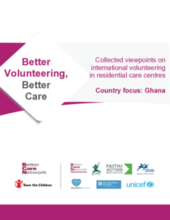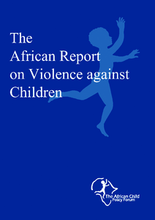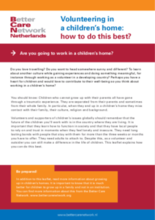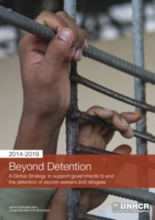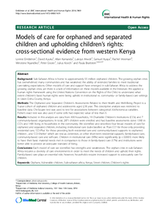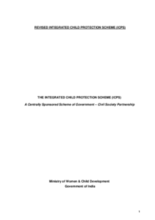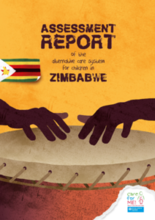Displaying 1211 - 1220 of 1510
This overview is intended to contribute to discussions on international volunteering in residential care centres as an anecdotal research piece on the situation in Ghana.
This report, from the African Child Policy Forum, is aimed at informing and accelerating pan-African, regional and national efforts to prevent and respond to violence against children.
This leaflet was developed by the Working Group ‘Quality of Care’ of Better Care Network. It is published by Better Care Network Netherlands. The leaflet provides useful information on child development and children’s care for those planning to volunteer at orphanages in developing countries.
This report, authored by the United Nations High Commissioner for Refugees, calls for a global strategy to prevent the detention of asylum-seekers and refugees in countries around the world, with an initial focus 10+ "focus countries." Among the Strategy's three main goals is the call to end detention of children, which requires a new legal and policy framework, the implementation of the "best interests" principle, alternative and appropriate reception and care arrangements for children (including foster care), and the provision of age-appropriate information to the child.
The authors of this article applied a human rights framework using the United Nations Convention on the Rights of the Child to understand what extent children’s basic human rights were being upheld in institutional vs. community- or family-based care settings in Uasin Gishu County, Kenya.
The Integrated Child Protection Scheme (ICPS) of India outlines, and contributes to the implementation of, the Government’s responsibility to establish an effective and efficient child protection system.
This report from SOS Children’s Villages presents a critical analysis of the Zimbabwe’s compliance with the UN Guidelines for the Alternative Care of Children which found “yawning gaps” between the laws and policies in place and the actual experiences of children on the ground.
This issue brief from the UNHCR highlights key messages from UNHCR in regards to alternative care, including the importance of making alternative care arrangements based on the best interests of the child and using residential or institutional care only as a very last resort.
This article closes a special edition focused on the state of child protection in 16 countries chosen to represent very different cultural contexts, historical backgrounds, and social welfare systems with special attention to out-of-home care placements, principally family foster care and residential care, though several aspects related to adoption were included as well.
This article reviews the history and development of out-of-home care services in Germany and the Netherlands comparing trends and numbers.

